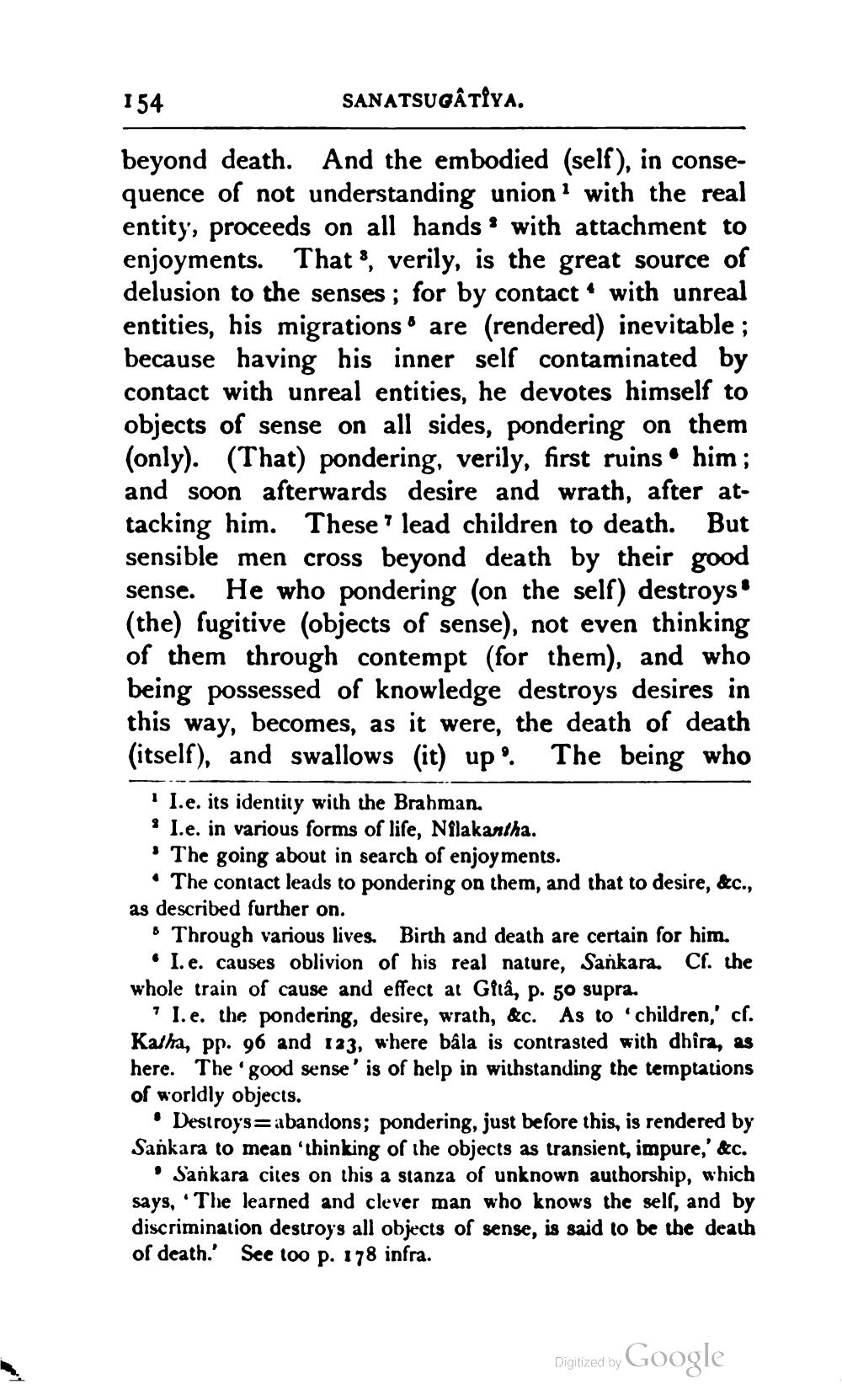________________
154
SANATSUGÂTIYA.
beyond death. And the embodied (self), in consequence of not understanding union with the real entity, proceeds on all hands : with attachment to enjoyments. Thats, verily, is the great source of delusion to the senses ; for by contact with unreal entities, his migrations are (rendered) inevitable ; because having his inner self contaminated by contact with unreal entities, he devotes himself to objects of sense on all sides, pondering on them (only). (That) pondering, verily, first ruins • him; and soon afterwards desire and wrath, after attacking him. These ? lead children to death. But sensible men cross beyond death by their good sense. He who pondering (on the self) destroys (the) fugitive (objects of sense), not even thinking of them through contempt (for them), and who being possessed of knowledge destroys desires in this way, becomes, as it were, the death of death (itself), and swallows (it) up. The being who
' I.e. its identity with the Brahman. * I.e. in various forms of life, Nilakantha. "The going about in search of enjoyments.
• The contact leads to pondering on them, and that to desire, &c., as described further on.
• Through various lives. Birth and death are certain for him.
• I.e. causes oblivion of his real nature, Sankara. Cf. the whole train of cause and effect at Gita, p. 50 supra.
? I.e. the pondering, desire, wrath, &c. As to children,' cf. Katha, pp. 96 and 123, where bâla is contrasted with dhira, as here. The 'good sense' is of help in withstanding the temptations of worldly objects.
• Destroys=abandons; pondering, just before this, is rendered by Sankara to mean 'thinking of the objects as transient, impure,' &c.
• Sankara cites on this a stanza of unknown authorship, which says, 'The learned and clever man who knows the sell, and by discrimination destroys all objects of sense, is said to be the death of death.' See too p. 178 infra.
Digitized by Google




